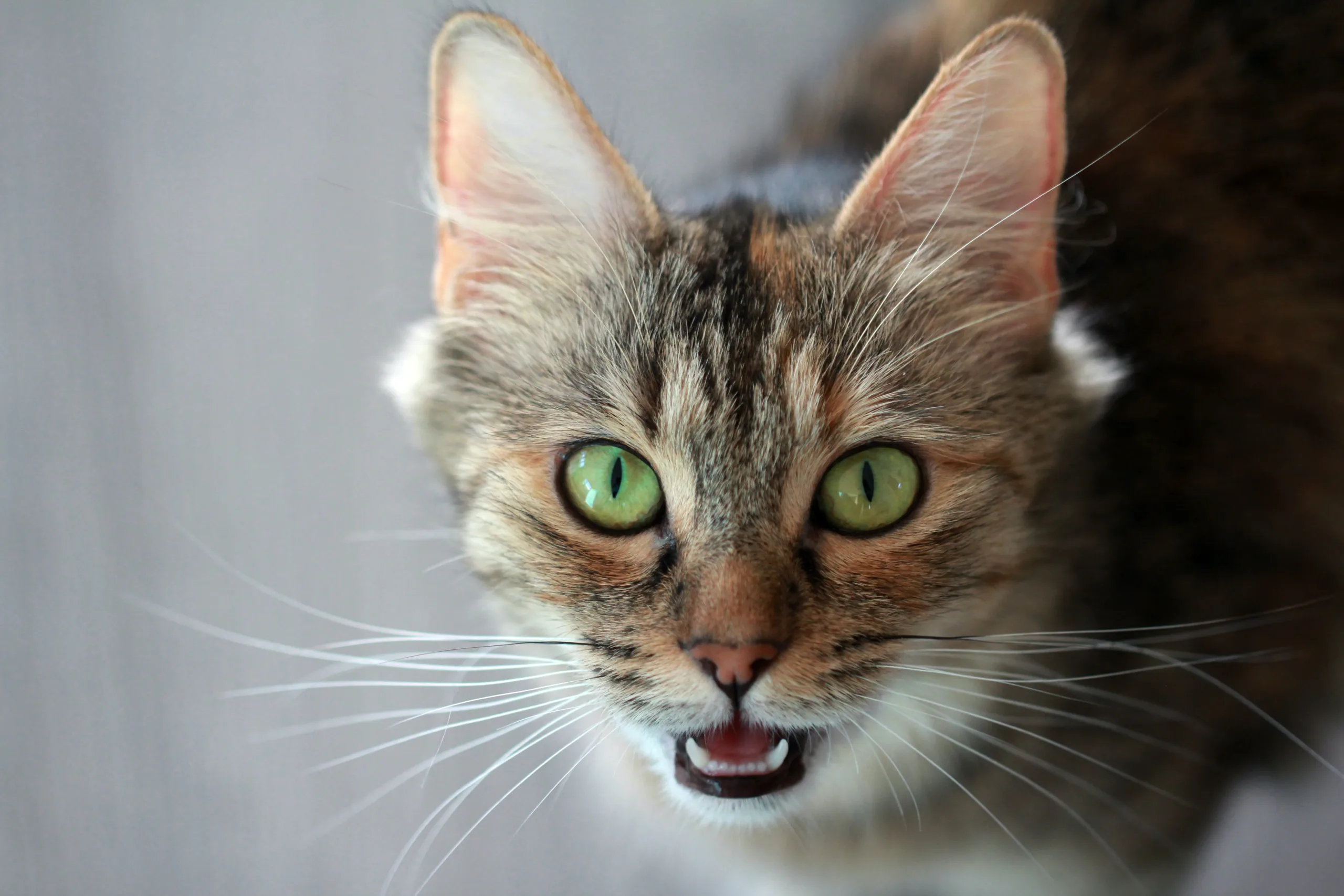Introduction:
As pet owners, we are attuned to our feline companions’ vocalizations, including their distinctive meows. When we notice a change in their meow, such as it becoming raspy or hoarse, it can be a cause for concern. A raspy meow in cats can be indicative of various underlying issues, ranging from minor irritations to more serious health conditions. In this article, we will explore the common reasons behind a cat’s raspy meow, whether it’s a cause for worry, sudden changes in a cat’s voice, and when it’s essential to seek veterinary attention.
For more about cats clcik here
Common Reasons for a Cat’s Raspy Meow:
- Upper Respiratory Infections: Respiratory infections, such as feline viral rhinotracheitis or calicivirus, can cause inflammation in a cat’s throat, resulting in a raspy meow.
- Allergies: Cats can be sensitive to various allergens, and exposure to allergens can lead to throat irritation and a hoarse meow.
- Throat Irritation: Cats may develop a raspy meow due to throat irritation from inhaling smoke, dust, or foreign objects.
- Laryngitis: Inflammation of the larynx (voice box) can result in a raspy or hoarse meow.
- Straining or Overuse: Cats may strain their vocal cords by excessive meowing or due to stress, leading to a raspy meow.
Should I Be Worried if My Cat’s Meow Is Raspy?
A raspy meow in itself may not be a cause for immediate alarm, as it can result from minor irritations that resolve on their own. However, it is essential to monitor your cat’s overall health and behavior. If the raspy meow persists or is accompanied by other concerning symptoms such as difficulty breathing, loss of appetite, or lethargy, it is crucial to seek veterinary attention promptly.
Why Does My Cat Suddenly Have a Raspy Meow?
Sudden changes in a cat’s meow can be attributed to various factors:
- Infections: Upper respiratory infections or laryngitis can develop suddenly and affect a cat’s meow.
- Allergic Reactions: Cats can have sudden allergic reactions to environmental factors, leading to a raspy meow.
- Ingestion of Irritants: If a cat ingests irritants or foreign objects, it can cause immediate throat irritation and result in a raspy meow.
- Overexertion: Excessive meowing or vocalization due to stress or excitement can strain a cat’s vocal cords, causing a sudden change in their meow.
Can Cat Laryngitis Go Away on Its Own?
In mild cases of cat laryngitis, the condition can resolve on its own with proper rest and care. However, if the raspy meow persists or worsens, or if other concerning symptoms develop, it is essential to consult a veterinarian for a proper diagnosis and treatment.
Why Has My Cat’s Voice Suddenly Changed?
A sudden change in a cat’s voice, such as a raspy meow, can be attributed to various causes, including infections, allergies, irritants, and overexertion of the vocal cords. Identifying the specific reason may require a veterinary evaluation.
FAQs:
1. Should I be worried if my cat’s meow is raspy?
While a raspy meow may not be an immediate cause for concern. It’s essential to monitor your cat’s health and behavior. If the raspy meow persists or is accompanied by other concerning symptoms, consult a veterinarian.
2. Why does my cat suddenly have a raspy meow?
Sudden changes in a cat’s meow can result from infections, allergic reactions, throat irritations, or overexertion of the vocal cords.
3. Can cat laryngitis go away on its own?
In mild cases, cat laryngitis may resolve on its own with rest and care. However, persistent or worsening symptoms require veterinary attention.
4. Why has my cat’s voice suddenly changed?
A sudden change in a cat’s voice, such as a raspy meow, can be due to various factors. Including infections, allergies, irritants, or overexertion of the vocal cords.
A raspy meow in cats can be a sign of various underlying issues, some of which may require veterinary attention. While some cases of throat irritation or laryngitis may resolve on their own, persistent or worsening symptoms should not be ignored. Monitoring your cat’s health, behavior, and seeking timely veterinary evaluation when necessary can ensure their well-being and help resolve any potential health concerns associated with their meow.
Click here for more
